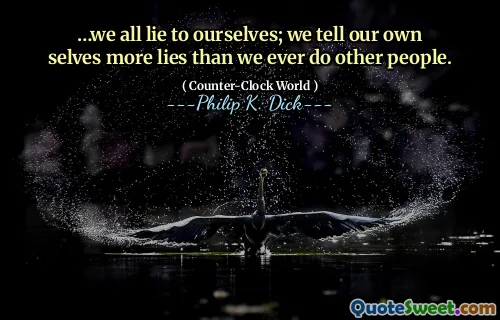Counter-Clock World, a novel by Philip K. Dick, explores a unique and complex concept of time where society experiences life in reverse. In this alternate reality, death is not the end but rather a transition into a younger state of being. The narrative centers on the implications of this reversed aging process, impacting relationships, social structure, and personal identity. The characters navigate a world where everyone is moving backward through time, creating a sense of unease and existential questioning.
The protagonist, Hawthorne Abdenson, works in a society where people are resurrected from death and must contend with the consequences of their past lives. This scenario raises intriguing philosophical questions about memory, morality, and the nature of existence. Characters grapple with their previous choices and experiences, now viewed through the lens of their reverse aging. The societal implications of such a world lead to a complex interplay of human emotions and motivations.
As the story unfolds, it delves into themes of temporal manipulation and the human condition. Dick's imaginative setting challenges readers to think critically about time, life, and death. The novel serves as a poignant meditation on how these concepts shape our lives and relationships. Ultimately, Counter-Clock World paints a vivid picture of a society that, while fantastical, mirrors real-world concerns about the passage of time and the choices we make.
More »
Today Birthdays
1866 -
Gilbert Murray
1959 -
Patrick Nielsen Hayden
1956 -
Lynda Barry
1920 -
Isaac Asimov
1928 -
Daisaku Ikeda
1938 -
Robert Smithson
1967 -
James Marshall
1938 -
David Bailey
1936 -
Roger Miller
1909 -
Barry Goldwater
1983 -
Kate Bosworth
1962 -
April Winchell
1940 -
Jim Bakker
1963 -
Matthew Stewart
1942 -
Dennis Hastert
1905 -
Michael Tippett
1970 -
Eric Whitacre
1947 -
Jack Hanna
1858 -
Beatrice Webb
1972 -
Taye Diggs
1963 -
David Cone
1991 -
Ben Hardy
1913 -
Anna Lee
